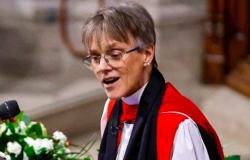Bakel, Jan 21 (APS) – Citizen consultations devoted to the revision of the agro-sylvo-pastoral orientation law (LOASP) were opened in Bakel (east), at the initiative of the NGO Enda Pronat and the Ministry of Agriculture and Food Sovereignty and Livestock.
“It is a law promulgated in 2004 (…), after 20 years, it had to be revised, to make it much more in line with the evolution of society, the evolution of production systems but also the evolution climate,” explained Tamsir Mbaye, director of the National Forestry Research Center of the Senegalese Institute of Agricultural Research (Isra), on Monday.
Mr. Mbaye spoke with journalists at the end of the meeting chaired by the deputy prefect of Bakel, Ngor Pouye, in the presence of administrative and territorial authorities as well as farmers and breeders in the area.
“This revision will make it possible to examine the status of professionalization and recognition of agriculture,” he indicated.
It will also make it possible, he added, to see “how to make agro-sylvo-pastoral and fishing activities carried out by 70% of the population of Senegal, recognized and socially acceptable professions”.
He noted that 52 commitments were made and essentially revolve around the professionalization of agriculture, making agricultural production understandable, revaluing the social profession of agriculture, initiating dialogues between stakeholders.
“Tambacounda is an extremely important region when we talk about the agro-sylvo-pastoral orientation law, because we find all the dimensions of rural exploitation there (…) it was time to get there in order to implement places strong teams who go to the departments to collect contributions from stakeholders and their recommendations,” underlined Mr. Mbaye.
-It is planned to organize in the second half of February the higher agro-sylvo-pastoral orientation council with the President of the Republic Bassirou Diomaye Faye to “talk with the peasant world”, he said. .
This is why “an ad hoc commission was tasked with doing everything possible to finalize the consultations at the regional level,” added Tamsir Mbaye.
“With the higher council, the actors also had to share strong messages for the President of the Republic on behalf of the rural populations of the region” he said, regretting a “lack of knowledge” of the law and the provisions it contains among the actors.
Farmers and breeders interviewed were delighted with the meeting. They invited the authorities to take better account of the agricultural and livestock professions with water control and good organization of stakeholders.
AND/ABD/ADL/ASB





